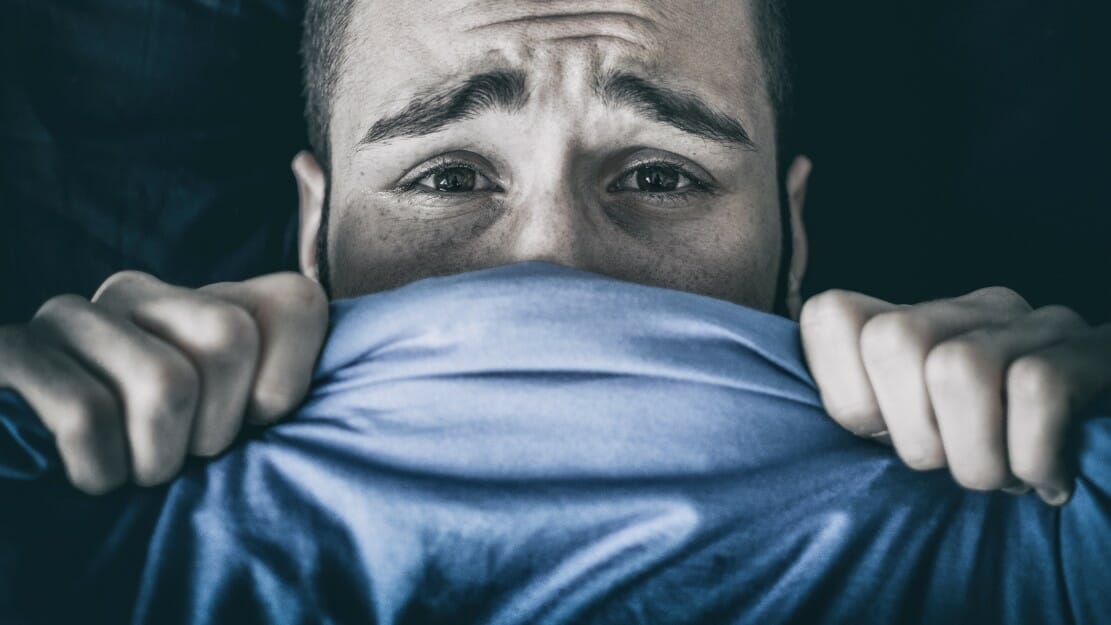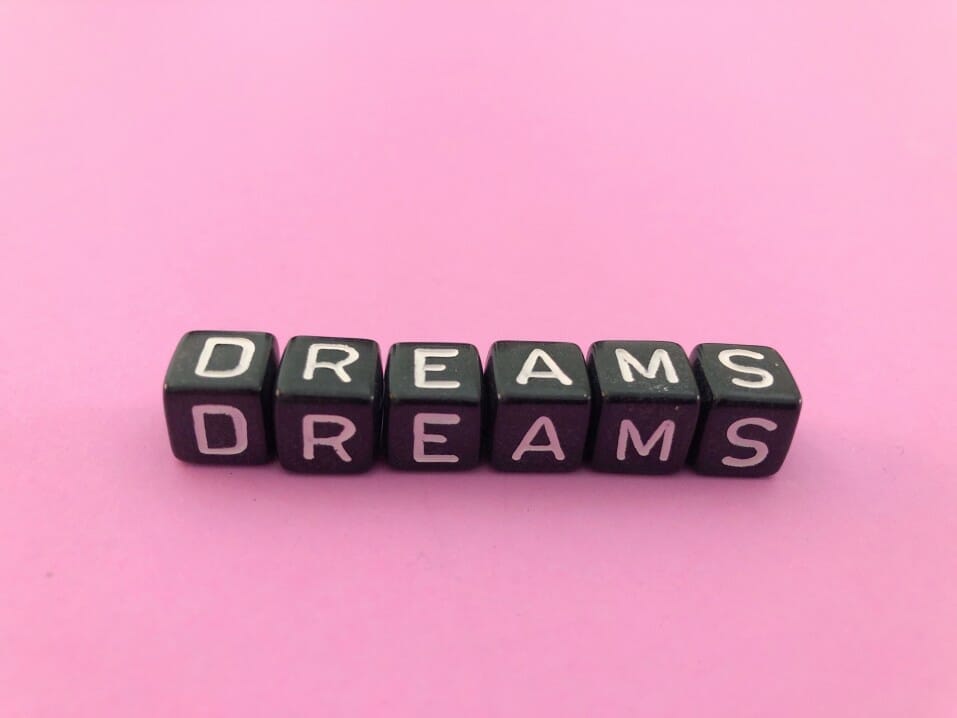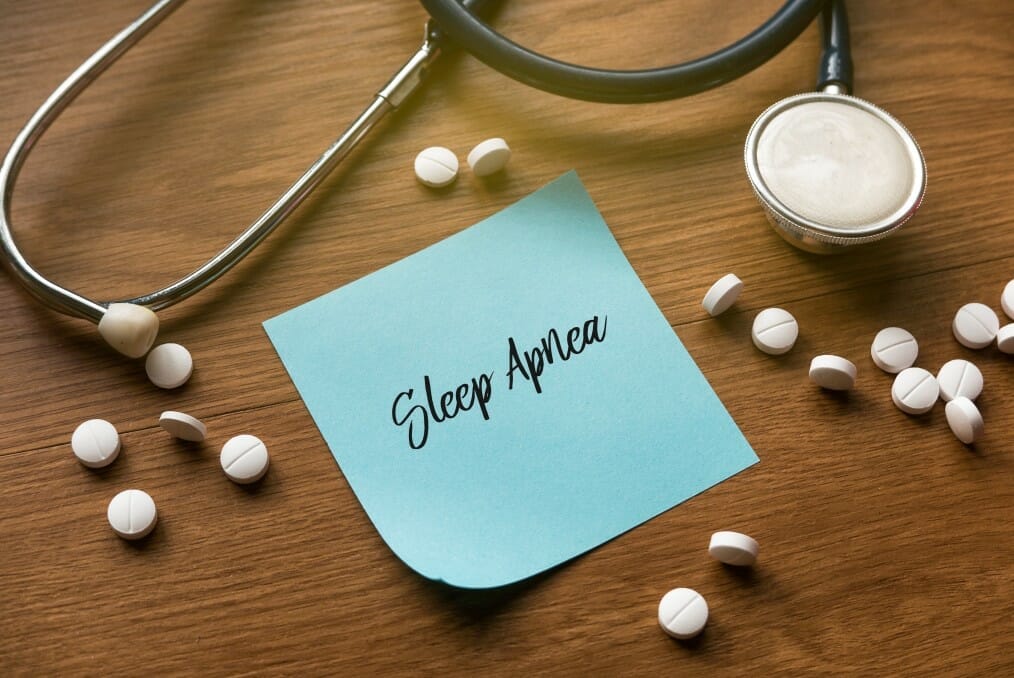
Hi, I'm Kyle Hornby and I'm a Waterloo Region Dentist who loves to write about all things Dental. Today, I'm going to explore a common patient concern. Many patients come to us and ask, "I have dreams about my teeth falling out - what does that mean?". In many cases, it's an important signal or "tell" that something potentially harmful is going on in their mouth. Read on to find out what "teeth falling out" dreams really mean.
Here's our table of contents to help you navigate through today's post:

Before we talk about what it means if you have teeth falling out (TFO) in your dreams, it probably makes sense to briefly discuss a little of what we currently know about dreaming.
So, why do we dream?
Research surrounding dreaming is certainly not new but it academic interest in dreaming has certainly intensified over the past 2 decades. Theories surrounding dreaming are aplenty and aim to explain how dreaming might benefit us.
It's important to keep in mind that dreaming probably does a lot for us and benefits us in numerous ways.
Perhaps the most supported theory about dreaming is that it is a process that helps us to re-organize and consolidate our memories. We take in a lot of information on a daily basis in the form of sights, sounds, smells and even tactile sensations. Dreaming likely helps us to store necessary information in a more efficient way through repeated recall during nighttime brain function. Pathways in the brain that are associated with different thoughts, feelings and memories are re-activated many times over as we strengthen and organize information during sleep.
Interestingly, dream content also differs (on average, of course) between genders. Men tend to have a higher percentage of dreams involving aggression. Women tend to dream about family safety more frequently.
Dreams may also reflect common thoughts and concerns that we experience while awake. There is also evidence that dreams may be influenced by chronic pain. This suggests that our dreams can be shaped by events in our life (likely not a surprise to any of you reading this) but also sensations and activities that go on as we sleep.
So, how does any of this relate to dreams about our teeth falling out?
Let's get to that now...
There are many articles floating around about why people dream about their teeth falling out. Some note that these kinds of dreams tend to occur more frequently with people that are suffering from anxiety or depression. Others note that these dreams may occur because of feelings of weakness, vulnerability, inferiority, or because you're worried about your appearance. To be completely honest about it, it's not easy to identify what's transpiring thought-wise as somebody dreams about their teeth falling out.
As a Dentist, I have a unique viewpoint because I can see what's going on in the mouth of people who complain of disturbing dreams.
So when a patient asks me, "why do I keep having these dreams about my teeth falling out?", I can look at their teeth for a possible answer. The reverse also happens and allows me to test my hypothesis about why these dreams happen. That is, I see certain signs in the mouth and ask, "do you have dreams about your teeth falling out?".
So, what are these signs and what do they suggest is going on?
According to what I'm seeing (and these are empirical observations and not rigorously reviewed research), I believe that dreams about teeth falling out tend to happen mostly or entirely in patients who grind their teeth.
How did I come to that conclusion and what signs show me that grinding is occurring?
The first is tooth wear. People who grind their teeth will increase their rate of enamel loss. They'll have wear spots that are yellow where underlying dentin shows through. This most commony occurs on the chewing surfaces of molars and premolars (this would be the back 4-5 teeth in every corner, depending on whether you have your wisdom teeth or not).
The second sign is gum recession. Even though we don't chew our gums during nighttime grinding stints, we are locking our teeth together and wiggling them (under very heavy forces) in a side-to-side manner. This will "annoy" your gums over time and they'll likely recede.
You may even develop characteristic divots in your teeth around the gum line. These are called abfractions and they can often be very sensitive to cold or contact with your tooth brush.
While I wouldn't take my accumulated observations to guarantee that your teeth falling out (TFO) dreams mean you're grinding, I would suggest asking your Dentist if they see signs of tooth wear or gum recession that point to nighttime grinding.
That's right: anybody that's had recurrent dreams that their teeth are falling out should mention it at their next dental visit. It's an important thing to bring up.

I often find that people who have recurrent TFO dreams grind their teeth. And, very importantly, nighttime teeth grinding is correlated with sleep disturbances, snoring and obstructive sleep apnea (OSA).
Slow down? What do I mean about sleep disturbances? What's obstructive sleep apnea?
By sleep disturbances, I'm referring to low quality sleep during which a person moves between sleep states frequently. You may move around, show restlessness or even wake up periodically through the night. This kind of thing is really common in people who perform shift work and are frequently having to alternate between day sleep and night sleep.
Sleep disturbances can also be caused by chronic pain. Pain spikes may trigger an individual to partially awaken or come out of deeper levels of sleep such as REM sleep.
In REM sleep, our muscles are inhibited but when we move from REM sleep to other sleep stages, we sometimes do so with increased muscle activity triggering restlessness.
This may take the form of movement while asleep or clenching and grinding our teeth (there are other reasons that might trigger grinding and we'll talk more about this in a second).
So, sleep disturbances can trigger tooth grinding and this may lead to the occasional dream where your teeth are falling out. Can anything else do this?
Yes.
Obstructive sleep apnea (OSA), which involves frequent awakenings due to airway closure while asleep, can also trigger tooth grinding and strange dreams.
How?
Current research on OSA is advancing rapidly. We are understanding more and more about OSA and its effects on the body every day. Some experts believe that tooth grinding is the byproduct of jaw movements designed to re-open a closed airway.
So, if we think in reverse about this, you should take dreams about your teeth falling out as a trigger to ask your Dentist not only about tooth grinding but about sleep apnea as well. Those strange dreams don't mean that you're definitely grinding or that you suffer from OSA, but it's probably safe to say that you're at an increased risk for both.
(And, of course, asking your Dentist never hurts.)
Well, not much can be done to directly alter your dreams but your Dentist can help to treat some of the harmful events (grinding and apnea) that are likely to trigger those dreams.
People often ask astutely, "if I don't know that I'm grinding and I'm doing it while I'm not conscious, how can it be stopped?". And, they're right: you can't really stop people from grinding their teeth.
Luckily, you can help them to protect their teeth (from wear and enamel loss) and gums (from recession).
The problem with tooth grinding is that teeth are locked tightly together under heavy forces and then wiggled laterally as the jaw moves side-to-side. This creates friction which wears down your enamel. The wiggling motion on teeth annoys the gums, sometimes leading to severe recession.
What we need to mitigate this stress and pressure is a cushioning device. Something that your teeth can slide around on to minimize lateral pressures. Something that prevents opposing teeth from making contact under excessive force.
The appliance that does this is called a night guard and it's something that your Dentist can make for you.
Now, for sleep apnea, the solution is a little more involved but, don't worry, testing is reliable and treating apnea can add years to your life.
To quickly replay what we've talked about, Obstructive Sleep Apnea involves repeated airway closure during sleep. This airway closure can trigger many awakenings during the night.
As I mentioned above, having dreams where your teeth are falling out doesn't mean you suffer from OSA. You might not even be grinding.
But, it doesn't hurt to mention these dreams to your Dentist so that they can check for signs of grinding and apnea.
Some Dentists provide airway testing as a screening tool for snoring and OSA. Others will refer patients to a local sleep clinic for a sleep study (don't worry! many clinics now arrange at-home sleep studies so that you don't have to spend the night trying to slumber in an unfamiliar place).
These sleep studies will monitor many of your body signs (like heart rate, for instance) as you sleep to identify any potential problems.
Obstructive sleep apnea can be treated with oral appliances designed to prevent airway collapse (mild to moderate cases) or (in severe cases) a Continuous Positive Airway Pressure (CPAP) machine may be recommended.
While there's rapidly advancing research on the science and biology of dreaming, it's much harder to clear up what certain dreams might mean or represent. Much of what we dream might be based on memory and doesn't necessarily indicate that anything is going on in our bodies.
Certain types of dreams, however, may be correlated with certain fears, worries or, in some cases, may be accompanying certain feelings or movements going on while asleep.
If you ask a group of Dentists, most will probably tell you that they've heard some of their patients report having had dreams about their teeth falling out. Of those Dentists, I'd be willing to be bet a large percentage noticed signs of nighttime tooth grinding.
This is certainly not great science but the cost of entertaining the possible link between teeth falling out dreams and tooth grinding or even obstructive sleep apnea is zero. That is, if you're experiencing these dreams, tell your Family Dentist, "I have dreams about my teeth falling out".
Ask them if they notice any sign of tooth grinding as well as if they could be related to sleep disturbances like OSA.
If doing this uncovers previously undetected grinding or sleep apnea, you'll be able to make choices that improve the health and durability of your teeth and gums and you may even add years to your life.
By Dr. Kyle Hornby, Dentist in Kitchener, Ontario
Our Dentist Office is located in Downtown Kitchener, Ontario. We are a short drive away for families in Waterloo, Breslau & St. Jacobs. Our central location means we truly offer family dental care near you!
This article is not intended to be a substitute for professional advice, diagnosis, or treatment. Accordingly, always seek the advice of your Dentist or other healthcare providers regarding a dental condition or treatment.
Services
Routine Dentistry & Tooth Repair
Oral Surgery & Tooth Removal
Prosthetic Dentistry & Tooth Replacement
Protective/Preventive Services
Teeth Whitening
Schedule an Appointment Now
